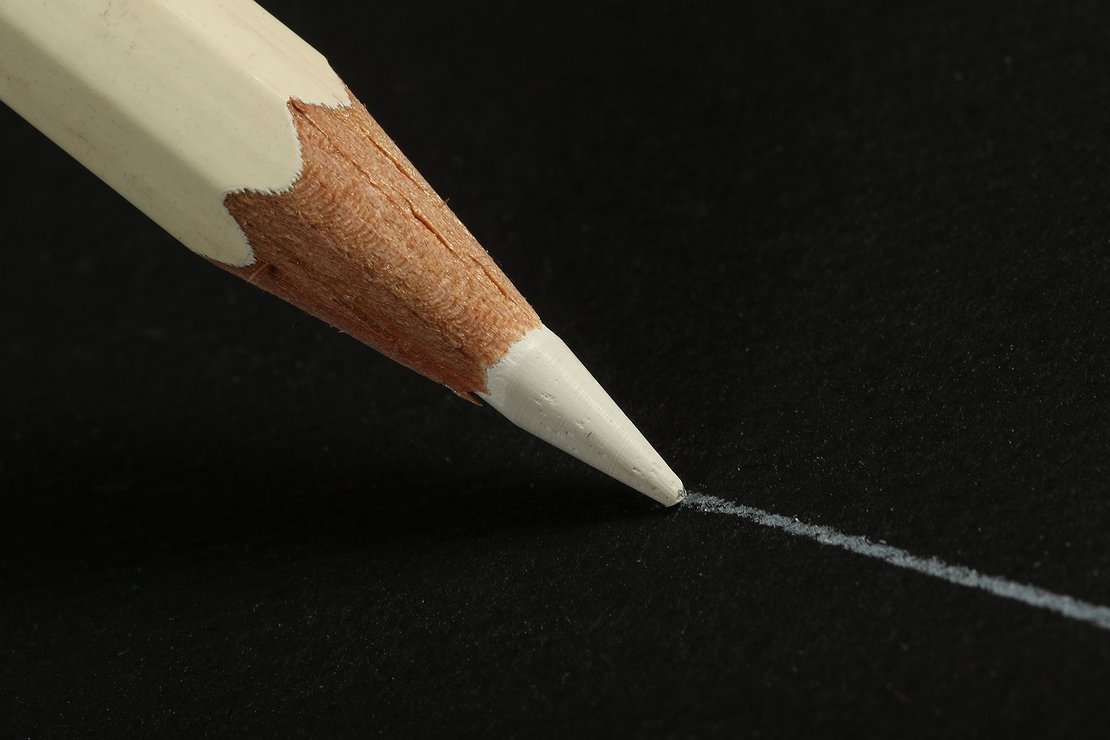
Life and all that:Calendar Mottos and Other Random Pearls of Wisdom
Recently I noticed that a certain stock of more or less profound pearls of wisdoms has been stubbornly accompanying me for quite some time – some of them for decades. Sometimes these aphorisms are combined with new thoughts and thus form an ever-larger bundle of reflections over time.
One of the first sentences of this kind came to mind when I exchanged my philosophical studies (which, due to circumstances, were interposed in my life planning) for the law studies I was actually striving for: “Life is drawing without an eraser.” Those six words on a calendar sheet developed an amazingly tormenting potential for my state of mind as a student. For weeks I struggled to concentrate while reading legal textbooks, because I felt that every minute of this reading prevented me from reading something else. The more consistently you strive for a goal on one side, the more consistently you distance yourself from every goal on the other. It was no consolation to know that I was not alone with this fate. Only after some time did I succeed in pulling myself out of this dilemma, by making myself aware that, at any time, unerasable drawings can at least be turned upside down or sideways. With fantasy and creativity, it was possible to develop the ineradicable previous life in a different direction. With Francis Picabia, I found the almost complementary realization: “The head is round so that our thoughts can change direction.”
Nevertheless, the time for work and gaining knowledge remained limited, which of course still hurt. At this point of my sentence bundle forming I met Robert Spaemann in Munich, who introduced me to the amazing idea that only a temporary life offers the possibility to value anything at all. He said: “If life were infinite, nothing would have value.” For one would never have to decide between A and B, because one could make up for everything, one after the other, in eternity. It was not until many years later that, in my reading that had meanwhile been extended to economics, I came across the term ‘time preference.’ This concept is obviously very close to Spaemann's lesson, but how the idea is defined in economics regularly leaves me dissatisfied: Anyone who prefers consumption in a certain now to a later one has – as I prefer to call it – a preference for the present, but not a ‘time preference.’ For even later consumption in the future will, according to all we know, still happen in time! Wouldn't it be more precise to describe the saver as one who prefers the future? So does not capital accumulation indicate a kind of future preference?
The future will show whether I will get a hearing with such terminological proposals (or whether others have perhaps long since already managed to impose such verbal clarifications, while I only don't know because I was busy reading something else). May this text be regarded here as my modest – and in this respect my last – attempt to make that linguistic differentiation universally valid or to promote it. The underlying, more fundamental question, which each of us is confronted with, is recognizably a more comprehensive one: How do I really want to deal with the short timespan of a human life, what do I want to achieve, what do I want to accomplish? If I hadn't been so involved with other things so time-consuming and absorbing in my life so far, perhaps I would have had the opportunity to lie down on the couch of one or other therapist and dwell more monologically on this question. And maybe I would know more to tell myself about it. Recently, in the middle of this rather blank spot on my mental map of life another sentence landed, printed in black-and-white on a postcard, an irritating question of a certain Mr. Unknown: “What would you attempt to do if you knew you could not fail?”
In his book ‘Menschen, Orte, Fäuste,’ Wolf Wondratschek stated to the effect that there are certain sentences which are so impressive that they could knock out even Ernest Hemingway. My impression is that the question on Mr. Unknown's postcard has the potential to consistently knock out of everyone's mind any excuses regarding good intentions or life plans. With this question, every ‘yes-but,’ every ‘really-I-should’ and every ‘basically-one-should’ is forced to answer at this decisive point: What exactly is the obstacle you predict you will not be able to overcome, which is why you refrain from setting off toward the goal of your dreams?
Those who secretly add to the objective world more difficulties than there may in fact be all too quickly and regularly find exculpatory justification for not having to set off at all to the goal of their subjective dreams. The extent to which the supposed reality ‘out there’ is merely a construct of the interaction with the respective observer is illustrated in a small video film that has been circulating on the net for some time. The cameraman was standing in an underground station while filming a red and white striped train. Whether this train is entering or leaving the station can be determined by the viewer: The direction of travel is constructed in the viewer's brain. How often, I ask myself, do we in the reality outside of this film believe that we recognize a direction of movement that actually doesn't exist?
The question of the possibilities of influence and creative action of the individual occupies my subconscious mind, as I’d like to assume, more than I thought. Otherwise I can’t explain how, a few weeks ago, in front of a shop in Monaco, another sentence on the subject caught my eye: “Un jour j'irai vivre en théorie, parce qu'en théorie tout se passe bien” – “One day I will live in theory, because in theory everything goes well.” Although people tend to retreat into their inner worlds precisely because implementation in the outer world is threatened by too much difficulty? It seems to me that the problem is not a specifically French one.
On my way back from Monaco I was still inclined to think that the inactive would be forgiven for their passivity as long as they were satisfied with their fate. But then, at the end of the year, Norman Rentrop sent me a small booklet with a selection of ‘100 quotations for 2019’. In it, in 18th place, I read another very short sentence, which the quote collector apparently had only heard orally in June 2018. It was written by a violin maker named Martin Schleske and reads: “I don't protect my soul with satisfaction, but with gratitude.” And although the collection of quotations contains many very clever sentences – the protection of my soul through gratitude touched me the most. It has the potential to stay with me for as long as the sentence about drawing without erasers. Because if it is true that we can change a lot in the outer world if only we really want it, then there is always an impressive variety of factors that definitely elude our influence. If we nevertheless have reason to be happy about these uninfluenced circumstances, then thankfulness is certainly the more sustainable attitude towards fickle satisfaction. So it is nice that there is enough time to read this as well.
Translated from eigentümlich frei, where the original article was published on February 16th 2019.




